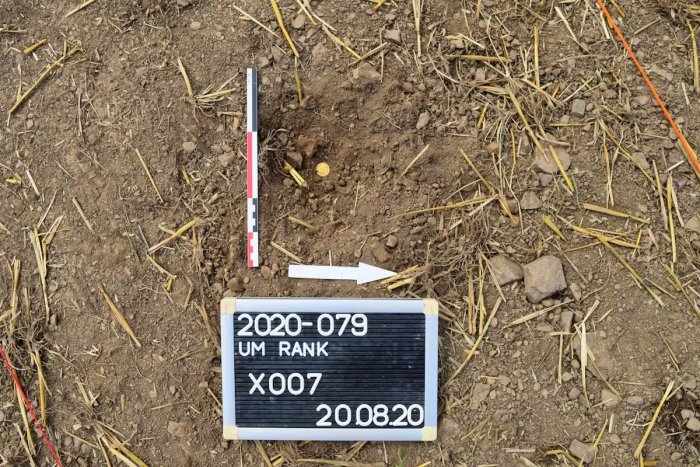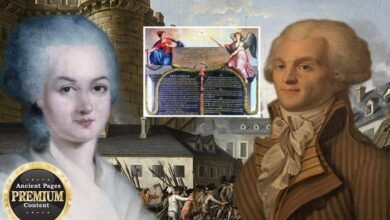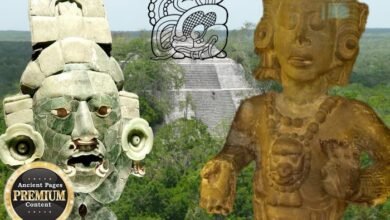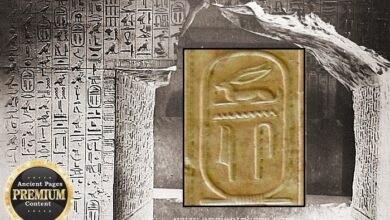Secret Archaeological Excavations Have Led To The Discovery Of An Extremely Rare Ancient Roman Gold Treasure In Parc Hosingen, Luxembourg

Conny Waters – AncientPages.com – Scientists have recently unveiled a significant archaeological discovery that had been kept confidential due to concerns about vandalism.
Researchers can now share their findings after conducting secret excavations from 2020 to 2024. Directed by the National Institute for Archaeological Research (INRA), these excavations took place at Um Rank in Holzthum (Parc Hosingen) and focused on uncovering the foundations of a fortified structure from the Late Roman Empire, known as a “burgus.”
Scientists suggest that the individuals who buried this treasure planned to return and reclaim their wealth eventually. However, for reasons unknown, they never fulfilled this intention. Credit: INRA
During this research, archaeologists made an extraordinary monetary discovery near the Roman fort: a treasure trove of 141 Roman coins featuring effigies of nine emperors who ruled between 364 and 408 AD. Notably, among these coins are three depicting Emperor Eugenius. It is a rare find due to his brief reign from 392 to 394 AD. This discovery is particularly significant because it allows for studying an entire ancient monetary deposit within its archaeological context, providing insights into why it was buried.
Credit: INRA
The hoard’s size and material composition are unusual, representing substantial personal wealth. Each gold solidus weighed approximately 4.5 grams and was highly pure, amounting to over six kilograms of pure gold—a collection most people in the Roman Empire would never have seen.
Credit: INRA
To ensure all artifacts were recovered safely amidst potential dangers from World War II munitions in the area, archaeologists collaborated with Luxembourg’s Army Mine Action Service (SEDAL). The meticulous recovery process required time and resources but proved invaluable for understanding late Roman history in Luxembourg and Europe.
See also: More Archaeology News
Due to their exceptional significance, these objects were acquired by the state with an estimated value of around 308,600 euros, according to government assessments. Scientists continue efforts to identify the owner of this remarkable coin collection and understand its historical context further.
Written by Conny Waters – AncientPages.com Staff Writer







